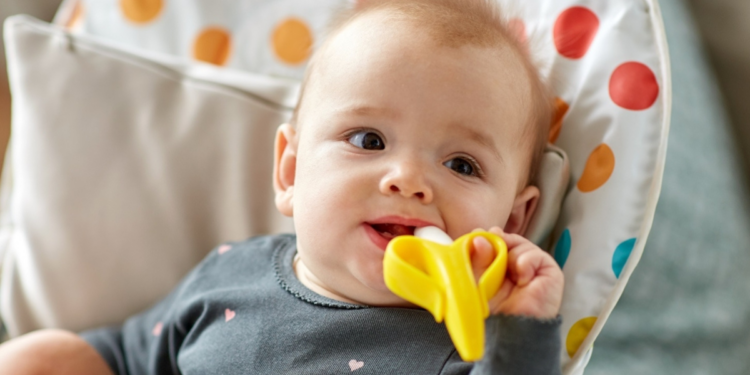Teething is a significant milestone in a baby’s early years, marked by growth and development. However, it can be accompanied by challenges, including pain, crying, and excessive drooling. Among the concerns that parents often have is whether teething affects their baby’s sleep. In this article, we will explore the facts surrounding this question, taking a closer look at the symptoms of teething and providing guidance on managing the discomfort. So, let’s delve into the topic: “Do teething babies sleep more during the day?”
Symptoms of Teething
Before we dive into the sleep aspect, let’s understand the common symptoms associated with teething. According to health experts, the general signs of teething include:
- General Fussiness or Irritability: Teething babies can become more fussy and irritable as a result of the discomfort caused by emerging teeth
- Chewing or Gnawing: Babies often resort to gnawing on their fingers, fists, or other solid objects to relieve the pressure on their gums
- Sensitive, Swollen Gums: Swollen and tender gums are a clear indicator that your baby might be teething
- Increased Drooling: Teething frequently leads to excessive drooling as a response to the discomfort
It’s essential to note that while teething can lead to a slight increase in your baby’s temperature, it should not cause a fever. If your baby experiences symptoms like colds, vomiting, diarrhea, or a high fever, these are not typical teething signs, and you should consult your pediatrician.
Do Teething Babies Sleep More During The Day?
Now, let’s address the critical question: Do teething babies sleep more during the day? In general, teething doesn’t cause babies to sleep more during the day. If your baby appears sleepier, it is often a result of other symptoms or discomfort rather than the teething process itself. For instance, acute fevers related to infections can make babies feel sleepier.
The American Academy of Pediatrics, however, suggests that the pain and discomfort associated with teething can be significant enough to disturb a baby’s sleep. Additionally, parents might unintentionally disrupt their baby’s sleep by altering their daytime and bedtime routines to accommodate teething-related changes.
Every Baby is Unique
It’s crucial to understand that each baby is unique in their growth and development, and this individuality extends to their experience of teething. Some babies may exhibit greater discomfort during teething, while others remain unfazed. The impact of teething depends on various factors, including the specific teeth erupting and the number of teeth emerging simultaneously.
Genetics also plays a role in how a baby is affected by teething. If an older sibling barely showed any signs of teething discomfort, it’s probable that younger siblings will follow the same pattern. Therefore, it’s important for parents to recognize and accommodate the uniqueness of each child’s teething experience.
Tips for Relieving Teething Discomfort
Dealing with a teething baby’s discomfort can be a challenging task for parents. Here are some practical tips to help alleviate your baby’s pain:
- Soothe the Gums with Cold Items: Use a cool, wet washcloth, your clean finger, or a teether to massage your baby’s gums gently. Cold foods like yogurt or ice cream can also provide relief, but avoid anything completely frozen as it can exacerbate the problem
- Provide Safe Chewing Options: Rubber teethers and teething rings are excellent choices to help relieve discomfort. You can also offer cold foods such as carrot sticks. Be vigilant to ensure your baby doesn’t choke on anything they chew
- Manage Drooling: Wipe your baby’s drool regularly with a small cloth to prevent rashes or skin irritation, especially on their cheeks and chin
- Consult a Pediatrician: If your baby is in significant discomfort, consult your pediatrician. They may recommend the use of baby acetaminophen (Tylenol) to reduce pain. However, remember that this medication should only be used for babies aged six months and older
Teething can be a trying experience for both parents and babies, but by addressing the pain and discomfort with the right strategies, you can ease this phase. Soon enough, your baby will be flashing a full-toothed smile, and the challenging teething period will be a thing of the past.
Conclusion: Do Teething Babies Sleep More During The Day?
In conclusion, teething is a natural and necessary part of a baby’s development, but it can bring discomfort and disrupt sleep patterns. While teething does not typically make babies sleep more during the day, the pain and discomfort may affect their sleep.




